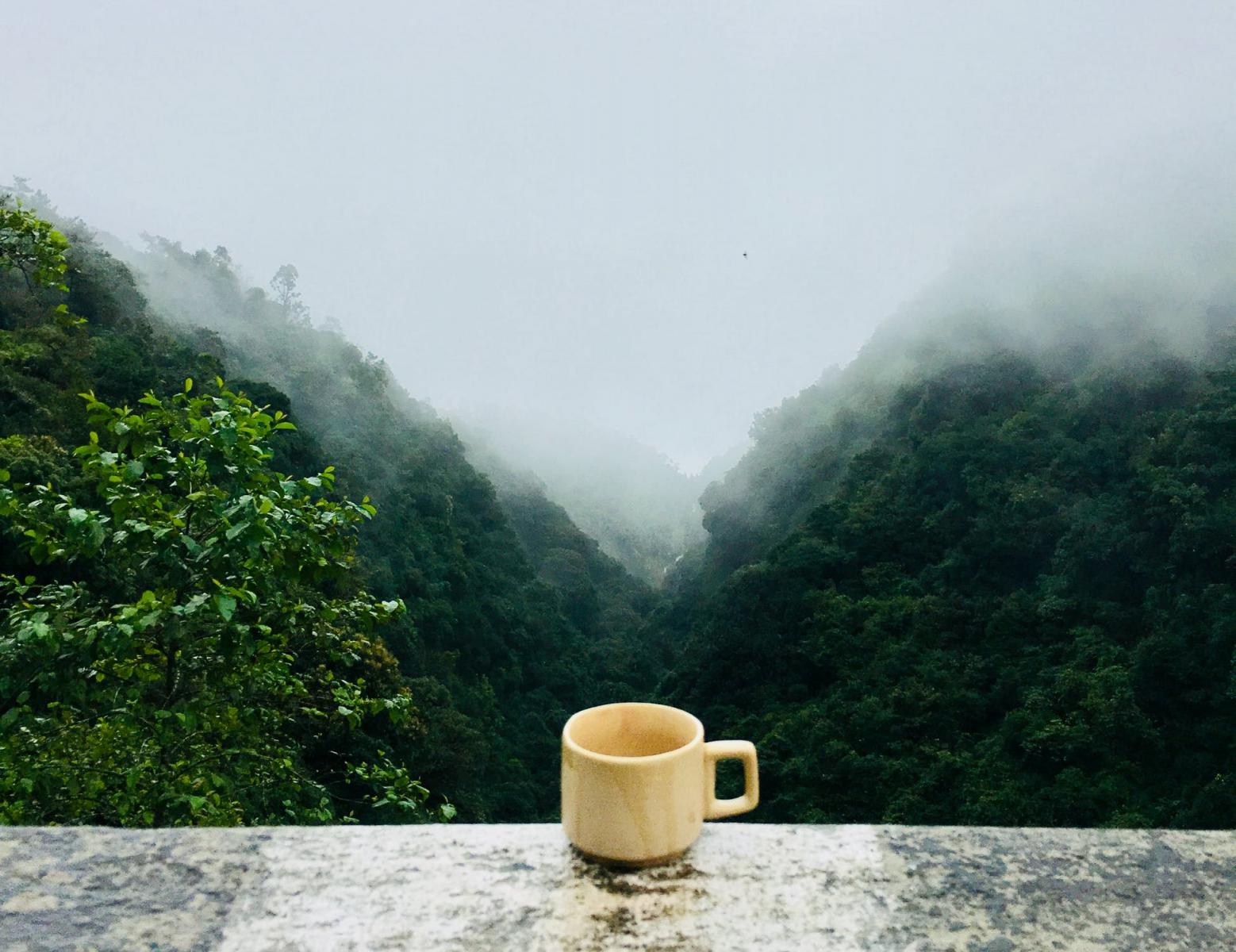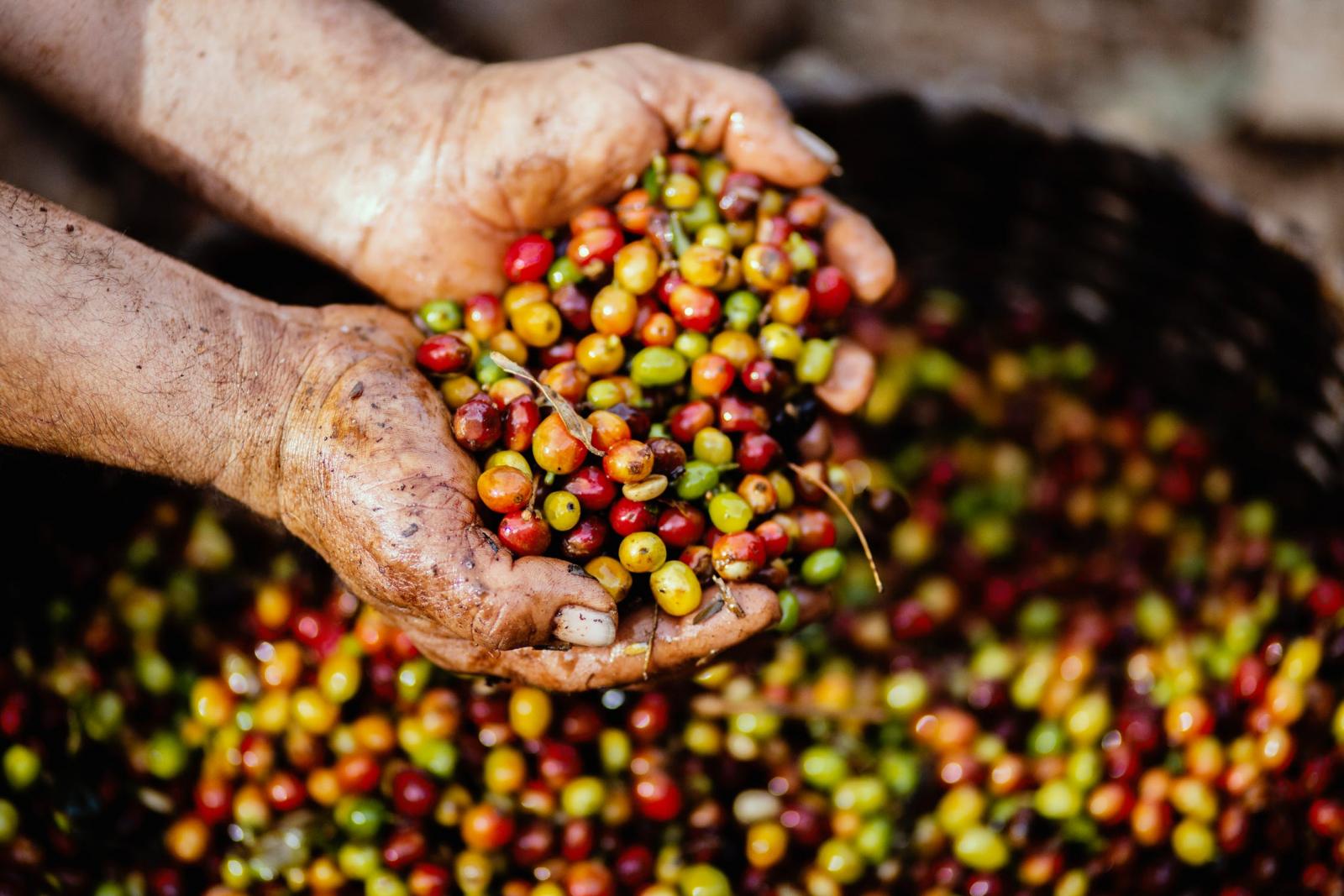Sustain • London Food Link • Articles
Coffee with a Conscience
Choosing between a latte and a flat white is often enough decision making for first thing in the morning, but what about the ethics? Lisa Harris explores the realities of coffee with a conscience.

We drink a lot of coffee here in the UK, gulping down 95 million cups a day. After you’ve swallowed that number, it might not come as such a shock that the coffee industry is worth billions with around 125 million people worldwide depending on its production for their livelihood. Like most other foods, coffee doesn’t come without environmental impacts – its production is associated with deforestation, soil erosion, biodiversity reduction and socio-economic issues like child labour and exploitation.
Most coffee consumed in the UK is still brewed at home, meaning that the coffee we put in our shopping baskets can make a real difference. There are three internationally recognised standards for quality coffee- Fairtrade, Rainforest Alliance and Organic. Whether you prefer granules on-the-go or lingering over a latte, these are the certifications you need to know about to ensure you’re buying coffee that’s better for everyone. But what do they mean and what’s the difference between them?
CHALLENGING THE COFFEE-CON
Coffee farmers’ incomes depend on a volatile benchmark called the ‘C-price’ - the price for a pound of Arabica coffee. This C-price often drops dramatically, like in 2018 when it fell below £1 – which is less than the cost of production. Fairtrade addresses this issue by ensuring their farmers always receive a price above the market rate. Buyers also pay an additional premium that the farmers’ cooperatives who grow the beans, can use to secure decent working conditions and support local sustainability.
THE LITTLE GREEN FROG
The Rainforest Alliance certification focuses on how farms are managed, aiming to protect natural resources while increasing farmers’ profits and social capital. The scheme includes a ‘continuous improvement’ criteria that lowers the barrier to entry and allows farmers to gradually improve their sustainability whilst using the label to boost their credentials and secure better prices for their beans. However, unlike Fairtrade, the Rainforest Alliance does not guarantee a minimum price for beans nor do farmers receive a premium.

PHOTO: LIVIER GARCIA
PESTICIDE OR CERTIFIED?
Organically certified coffee forbids the use of environmentally damaging synthetic pesticides and fertilisers during production. However, in some countries, like Guatemala, organic coffee farming isn’t a viable option as pests or diseases like leaf rust make it almost impossible to farm and make a living without some intervention. So, while it’s the positive environmental choice, it’s not always achievable for farmers.
COFFEE WITH A CONSCIENCE
“It’s worth looking beyond the labels” says Curve Roasters’ co-owner Tereza Vertatova. “It’s just not that black and white. Traceability is key – the more you can find out about a coffee, the more likely people have been paid and treated fairly along the way.”
As with so many food products, you’re more likely to get ethically sourced, good quality coffee from an independent specialist who knows their stuff. If they can answer your questions about where the beans come from, then you’re on to a good thing - and knowing you’ve done your best to make a conscious, informed decision will surely help you enjoy your favourite cup of coffee without a bitter aftertaste.
Find conscious coffee near you on our Good Food Map
www.fairtrade.org.uk @FairtradeUK
www.curveroasters.co.uk @curveroasters
Published Monday 24 February 2020
London Food Link: London Food Link brings together community food enterprises and projects that are working to make good food accessible to everyone in London to help create a healthy, sustainable and ethical food system for all.